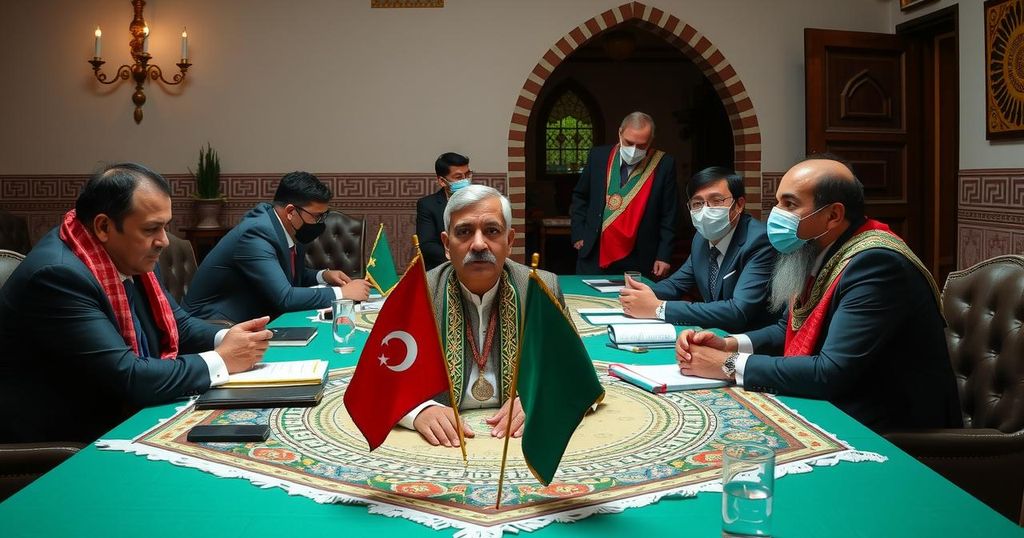Politics
AFRICA, ARAB, BENGHAZI, BO, BOUZNIKA, DEMOCRACY, GOVERNANCE, GOVERNMENT, HIGH COUNCIL OF STATE, HIGH STATE COUNCIL, HOUSE OF REPRESENTATIVES, LIBYA, MOROCCO, MU, MUAMMA, MUAMMAR QADDAFI, NASSER BOURITA, NATIONAL UNITY, OPPOSITION, POLITICS, RABAT, SIERRA LEONE, SK, SKHIRATE, TRIPOLI
Jamal Walker
0 Comments
Libyan Rivals Engage in Historic Talks in Morocco to Resolve Political Crisis
Delegations from Libya’s rival factions are engaged in talks in Morocco to overcome a political stalemate that has persisted since 2014. The discussions involve the High Council of State and the House of Representatives, with the objective of ensuring national unity and preparing for future elections, which have been stalled since December 2021. Moroccan officials stress the importance of inter-Libyan dialogue in achieving lasting resolution and governance.
The latest round of discussions among Libya’s opposing factions commenced in Morocco on Wednesday, aimed at resolving the prolonged political impasse and averting a return to disorder in the nation. More than a decade has passed since Libya was divided in 2014 into rival administrations in the east and west, following the NATO-supported ousting of Muammar Qaddafi in 2011.
Taking place in Bouznika, close to Rabat, these talks involve the High Council of State, which operates out of Tripoli, and the House of Representatives, which is located in Benghazi. Moroccan Foreign Minister Nasser Bourita emphasized the importance of cooperation to maintain Libya’s integrity and urged the assembly to focus on organizing “credible elections.”
Minister Bourita remarked, “The numerous international and regional conferences on Libya will not replace the inter-Libyan dialogue which has credibility and ownership.”
The political dynamics in Libya have been stuck for years, worsened by the failure of elections intended for December 2021 due to debates over candidate eligibility. Established in 2014 with a four-year mandate, the House of Representatives was meant to guide the political transition. In 2015, under a Moroccan-brokered Political Agreement, the High State Council was created as an advisory second chamber. However, a counterproductive move was made when the House of Representatives established its own government, claiming the previous prime minister’s mandate had lapsed, further deepening Libya’s divisions.
Libya has experienced a decade of fragmentation and conflict since the overthrow of long-time leader Muammar Qaddafi in 2011. The country became politically divided in 2014, resulting in two main rival administrations governing the eastern and western regions. This political deadlock has led to institutional instability, violence, and civil strife, necessitating multiple efforts for dialogue and reconciliation among the factions involved. The existing talks in Morocco represent a crucial step towards restoring unity and preparing for potential elections.
In summary, the ongoing discussions in Morocco are a pivotal effort to resolve Libya’s political deadlock and foster stability after years of division. With the participation of key legislative bodies, stakeholders aim to establish a framework for credible elections and reinstating governance. The words of Minister Bourita reiterate the necessity of direct inter-Libyan dialogue as an indispensable element of the peace process. Should these talks succeed, they may significantly alter Libya’s current precarious political landscape.
Original Source: www.arabnews.com




Post Comment